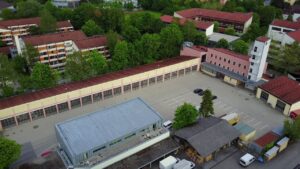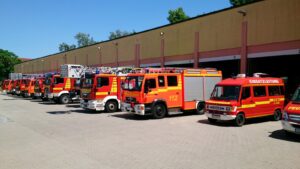Since 2005, I am a member of the volunteer fire department of Rosenheim. The fire department operates more than 24 emergency vehicles and is active with about 700-800 emergency operations per year.
In 2008, I completed the basic training and am involved in the active operational service. Over the years, I have received further specialized training in addition to regular training.


